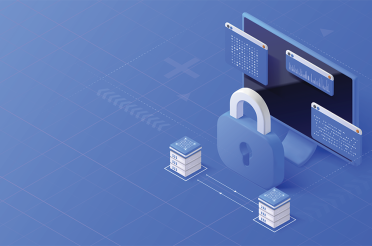AI chatbots, such as ChatGPT, are frequently in the headlines, and they certainly provide a lot of useful capabilities for their users; though as with many new online technologies, there will be those who use them to exploit and cause problems for others.
Here we look at the phenomenon that is chatbots, along with the effects that they might have on cybersecurity matters.
The Basics Of ChatGPT
ChatGPT has been creating a lot of interest since it became widely known, as it can undertake tasks such as composing emails, writing academic essays, and writing programming code. And while it does contain a lot of beneficial features, it is currently far from perfect, and it is known to produce errors in its responses.
ChatGPT And Cybersecurity
ChatGPT’s terms of use ban the creation of malware, ransomware, spam, viruses, and other online threats intended to cause harm, but unfortunately, there will be people who will want to use it to exploit others for their own gain. There are legitimate concerns that criminals will use ChatGPT to assist them with their efforts to undertake their malicious campaigns more effectively.
Email And Cybercrimes
Phishing attacks via email are a common method of online fraud attack, and criminals send emails containing dangerous links, malware, or an attempt to convince a potential victim to transfer funds – it is the use of the email medium that is key in these types of cyberattacks.
By using email, criminals require a constant stream of written content. Now, this type of email is easy to recognise, usually due to the use of poor grammar or incoherent language, but the use of a chatbot might make those emails more effective.
Online fraud is a global industry, with criminals from multiple countries now mailing, which means that using an intended target’s native language correctly is critical to the emails’ effectiveness. If a chatbot is exploited correctly, it can be used to write content for emails in any language, appearing as a native speaker, and in doing so make the email more effective in its intent.
Online Security Issues And AI Chatbots
Chatbot platforms do offer some preventive measures. As an example, ChatGPT requires its consumers to first provide an email address and a telephone number to complete and verify the registration process, though that is unlikely to deter any serious criminal actor.
And while ChatGPT will not produce a spam email upon request, it is possible to ask and receive email content from it for other types of messages, which might offer an email recipient some type of bonus or reward or notify them of an update that needs to be downloaded and installed with urgency.
But the potential to abuse AI chatbot tools isn’t limited to only emails. Cybercriminals could use a chatbot to write content for any online platform with an emphasis on text, such as Facebook, Instagram, or LinkedIn, which would all make for compelling targets.
This could be a valuable resource for a scammer, especially if they are employing a fake social media profile to interact with potential victims.
About ChatGPT Specifically
Aryon asked ChatGPT what rules it has in place to prevent it from being used to promote cyberattacks, and we received the following answer:
(Edited for brevity)
“As an AI language model, ChatGPT does not have intentions or desires to promote cyberattacks or any other illegal activities. However, OpenAI has implemented several measures to prevent the misuse of its technology, including ChatGPT, to promote cyberattacks or any other harmful activities.
Firstly, OpenAI has a code of conduct that prohibits any user from using its technology to engage in illegal activities, including cyberattacks.
Secondly, OpenAI actively monitors the use of its technology to detect any potential misuse.
Finally, OpenAI has a team of experts who are responsible for investigating any reports of misuse of its technology.
In summary, OpenAI has implemented several measures to prevent the misuse of its technology, including ChatGPT, to promote cyberattacks. These measures include a code of conduct, active monitoring, and a team of experts who investigate reports of misuse.”
Chatbots And Positive Cybersecurity Outcomes
There are also positives to the relationship between AI chatbots and cybersecurity. Chatbots are proficient at understanding programming code, and they can be used to help improve security cyber-defences, as they can assist developers to create improved and strengthened code quicker than humans alone.
In addition, chatbots can reduce the amount of time that it takes to create a security incident report, which would be another positive outcome for cybersecurity experts.
Stay Up To Date With The Latest Cybersecurity Challenges
Cybersecurity is constantly changing, and it can present many challenges. Aryon is up to date with all the latest online challenges that businesses might face, and we are ready to help. Please contact us to learn more.








